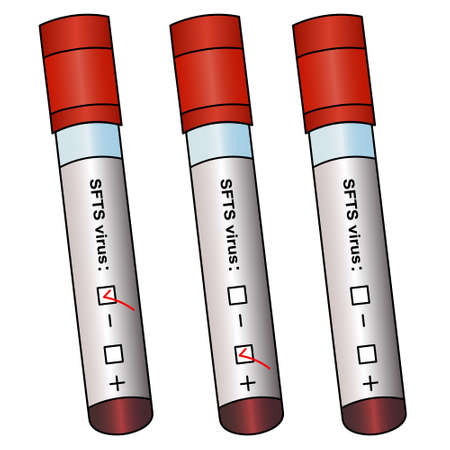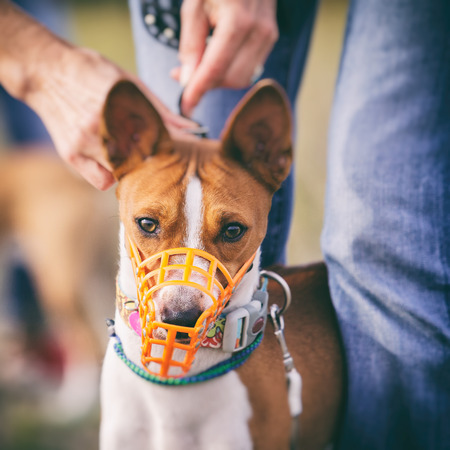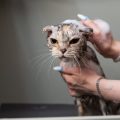Understanding the Basics of Small Pet Health
When it comes to caring for small pets such as rabbits, guinea pigs, ferrets, and hamsters, their health needs differ significantly from those of cats and dogs. These little companions require specialized care due to their unique physiology and sensitivities. Many people are surprised to learn that preventative care is just as crucial for small pets as it is for larger animals. Regular check-ups with a veterinarian experienced in exotic or small pet medicine can help detect health issues early, making treatment more effective and improving your pet’s quality of life. Preventative care also includes vaccinations (where appropriate), parasite control, dental checks, and proper nutrition tailored to each species. By understanding the basics of small pet health, you’re taking an important first step in ensuring your furry friend lives a happy, healthy life.
2. Common Vaccinations for Small Pets
When it comes to keeping small pets healthy in the U.S., vaccinations play a crucial role in preventing the spread of contagious diseases. The type of vaccines your pet may need can vary based on species, regional disease risks, and local regulations. It’s always best to consult with a veterinarian familiar with your area, as they can provide recommendations tailored to both your pet’s specific needs and any legal requirements.
Recommended Vaccines by Species
| Pet Type | Core Vaccines | Optional/Regional Vaccines |
|---|---|---|
| Rabbits | None required nationwide; RHDV2 (Rabbit Hemorrhagic Disease Virus 2) increasingly recommended in some states (e.g., California, Texas) | Pasteurella vaccine (where available) |
| Ferrets | Canine Distemper, Rabies (required in many states) | Influenza (regionally considered during outbreaks) |
| Guinea Pigs, Hamsters, Gerbils, Rats, Mice | No routine vaccines required or approved in the U.S. | N/A |
| Small Birds (Parakeets, Canaries, Finches) | No routine vaccines required; Polyomavirus for parrots and some aviary birds | Poxvirus (in high-risk regions or outbreaks) |
| Reptiles & Amphibians | No vaccines recommended or approved in the U.S. | N/A |
Regional Differences in Vaccine Recommendations
The need for certain vaccines can change depending on where you live. For example, outbreaks of RHDV2 have prompted some western states to urge rabbit owners to vaccinate their pets. Similarly, rabies vaccination is mandatory for ferrets in many states but not all. Your local veterinarian will be aware of current disease threats and legal requirements in your area.
The Importance of Veterinarian Guidance
Because recommendations evolve as new diseases emerge and spread, regular checkups with a knowledgeable vet are essential. They can advise you if any new vaccines become available or necessary for your pet due to local conditions. Keeping up-to-date with these guidelines ensures your small companion stays safe and healthy no matter where you live.

3. Preventative Care Beyond Vaccines
While vaccinations play a crucial role in protecting your small pets from common diseases, preventative care extends well beyond shots. Keeping your furry, feathered, or scaled friends healthy means being proactive about their overall wellness. Here are some essential aspects of preventative care that every small pet owner in the U.S. should prioritize:
Dental Checks: More Than Just Fresh Breath
Dental health is often overlooked when it comes to small animals like rabbits, guinea pigs, ferrets, and even rodents. Regular dental checks help prevent painful issues like overgrown teeth and infections. Ask your vet how often your pet needs oral exams—sometimes, even a simple at-home check for signs of drooling, loss of appetite, or changes in chewing habits can make a big difference.
Parasite Prevention: Keeping Unwanted Guests Away
Small pets can be vulnerable to fleas, mites, lice, and intestinal worms, especially if they spend time outdoors or interact with other animals. Discuss appropriate parasite prevention with your veterinarian; not all products are safe for every species. Staying on top of this helps avoid discomfort and more serious health complications down the line.
Nutrition: The Foundation of Wellness
A balanced diet tailored to your pet’s species is one of the best ways to support long-term health. For example, guinea pigs need vitamin C-rich veggies daily, while rabbits thrive on fresh hay and leafy greens. Avoid generic “one-size-fits-all” pellets and consult your vet or a trusted local pet store for guidance on proper feeding routines.
Environmental Enrichment: Happy Pets Are Healthy Pets
Physical and mental stimulation is just as important as physical health. Provide plenty of space for exercise, interactive toys, hideaways, tunnels, and safe items to chew or explore. Rotating enrichment activities prevents boredom and helps stave off stress-related behaviors or illnesses.
Staying Ahead with Routine Wellness Visits
Lastly, schedule regular wellness visits with an experienced exotic animal vet. These checkups go beyond vaccines—they allow professionals to spot subtle changes in your pet’s health before they become major problems. By focusing on dental care, parasite prevention, nutrition, and enrichment along with vaccinations, you’re building a strong foundation for a long and happy life together.
4. Choosing the Right Veterinarian
Finding the right veterinarian is essential when it comes to vaccinations and preventative care for small pets like rabbits, guinea pigs, hamsters, and other exotic animals. Not all vets have experience with these unique species, so its important to partner with someone who understands their specific needs. Here are some practical tips to help you choose a vet who can provide expert care:
Tips for Selecting a Small Pet Veterinarian
| Tip | Description |
|---|---|
| Seek Specialized Experience | Look for vets who advertise expertise in “exotic” or “small animal” medicine—not just cats and dogs. |
| Ask for Recommendations | Reach out to local pet stores, shelters, or online forums for small pet owners in your area. |
| Check Credentials | Verify that the vet is licensed and has additional training or memberships (e.g., Association of Exotic Mammal Veterinarians). |
| Visit the Clinic | Tour the facility to ensure it’s clean, organized, and equipped for small animal procedures. |
| Evaluate Communication | A good vet will answer your questions clearly and offer advice on at-home care and nutrition. |
The Benefits of an Ongoing Veterinary Relationship
Establishing ongoing care with a knowledgeable veterinarian offers multiple benefits for both you and your pet:
- Consistent Health Monitoring: Regular checkups help catch potential issues early—sometimes before symptoms appear.
- Personalized Preventative Plans: Your vet can recommend vaccination schedules, dietary guidance, and enrichment activities tailored to your pet’s species and lifestyle.
- Trusted Resource During Emergencies: When health concerns arise, having an established relationship means quicker access to advice and treatment.
- Long-Term Peace of Mind: Knowing you have a professional watching out for your small companion’s wellbeing allows you to enjoy more quality time together.
Choosing the right veterinarian is an investment in your small pet’s long-term health. Take time to find a trusted partner who values preventative care as much as you do.
5. Recognizing Early Signs of Illness
Being attentive to your small pet’s health means more than just regular vaccinations and checkups—it’s also about noticing subtle changes in their behavior or appearance that could signal something is wrong. Since small pets like rabbits, guinea pigs, hamsters, and ferrets often hide symptoms until an illness becomes serious, early detection is key to successful treatment. As a responsible pet owner, you play a vital role in spotting these early signs.
What to Watch For
Pay close attention to your pet’s daily habits. Sudden changes in appetite or water intake, unusual lethargy, or withdrawal from social interactions can be red flags. For example, if your normally energetic hamster suddenly becomes inactive or your rabbit stops eating hay, these could indicate underlying health problems that need veterinary care.
Physical Changes Matter
Regularly check your pet’s body for any noticeable differences. Look for things like weight loss, swelling, lumps, hair loss, or wounds that don’t heal. Discharge from the eyes or nose, changes in breathing patterns, or diarrhea are also warning signs. Even minor shifts in grooming habits—such as a guinea pig not cleaning itself as usual—deserve attention.
Behavioral Cues
Small pets often communicate discomfort through their actions. Keep an eye out for increased aggression, excessive hiding, repetitive scratching or biting at certain areas of the body. Any sudden change in litter box habits or posture—like sitting hunched up—can indicate pain or illness.
When to Seek Help
If you notice any of these signs, don’t wait and see if they resolve on their own. Contact your veterinarian promptly and share specific details about what you’ve observed. Early intervention often makes all the difference in treatment outcomes for small pets.
By staying observant and responsive to even slight changes in your pet’s condition, you’re giving them the best chance at a healthy, happy life—and ensuring that preventative care extends beyond just vaccines and routine exams.
6. Creating a Stress-Free Vet Visit Experience
Taking your small pet to the vet can be stressful for both you and your furry friend, but there are several practical steps you can take to make the experience more comfortable. The first step is choosing the right carrier. Opt for one that is well-ventilated, secure, and appropriately sized for your pet. Place familiar bedding or a favorite toy inside to provide comfort during transport. Before the appointment, try acclimating your pet to their carrier by letting them spend short, positive periods inside it at home. Gradually increase the duration so they associate it with safety rather than stress.
When transporting your small pet, keep the carrier steady and avoid sudden movements. Covering the carrier with a light towel can help block out unfamiliar sights and reduce anxiety. Drive calmly and avoid loud music or abrupt stops on the way to the clinic. Once you arrive at the vet’s office, keep your pet in their carrier until youre in an exam room—this helps limit exposure to other animals and overwhelming smells.
Communication with your veterinarian is key. Let them know if your pet gets especially nervous or has had negative experiences in the past. Many vets are happy to schedule quieter appointment times or offer tips specific to your pet’s needs. If possible, bring treats to reward calm behavior before, during, and after the visit.
Consistency also matters—regular check-ups help normalize the process for your small pet, making future visits less daunting. Over time, these positive associations will help ensure that routine vaccinations and preventative care become just another part of their healthy lifestyle rather than a source of fear.


